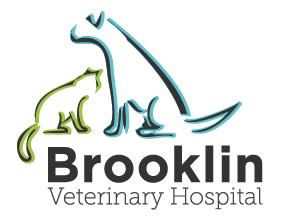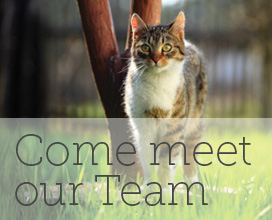Library
-
Adding a new kitten to your family is a lot of fun, but it is also a big responsibility. This handout reviews basic kitten care, including vaccinations, internal and external parasites, nutrition, and nail care. It also reviews the importance of early spay/neuter and microchip identification.
-
Congratulations on the addition of a new puppy to your family! This handout provides general care advice for your puppy, including nutrition, play and chewing behavior, housetraining, socialization, nail trimming, and basic first aid.
-
Owning a puppy can be an extremely rewarding experience but it is also a large responsibility that lasts the entire lifetime of the dog. Working with your veterinarian, there are several preventive measures to help keep your puppy safe and healthy as he grows up, including vaccination, parasite treatment and prevention, identification, and spaying or neutering your dog.
-
RAO (previously called chronic obstructive pulmonary disease or COPD) is a relatively common cause of coughing and nasal discharge in stabled horses. In long-standing cases the horse may have difficulty in breathing and its chest and abdomen can be easily seen to move, hence the even older name 'heaves'.
-
Reproductive disease in ferrets is rare today, as most pet ferrets are spayed or neutered at a young age. One disease that is still occasionally seen in pet ferrets occurs in females that are not spayed. This is called hyperestrogenemia and is a result of persistently high blood levels of estrogen in unspayed females that are not bred or fails to ovulate.
-
Abdominal swelling in any reptile is always a concern that needs to be brought to the attention of a veterinarian well versed in reptile medicine. In female reptiles, this swelling often means that the individual has eggs or fetus that are ready to be delivered. When the female cannot deliver the eggs or babies, this is referred to as dystocia. This condition can be life threatening and need attention ASAP.
-
Swellings on or around the joints in reptiles can be an indication of uric acid deposits in the area. This condition is referred to as gout. Gout is often painful and may also affect internal organs. Treatment will require medications and sometimes surgery.
-
Respiratory disease in ferrets is common. Several infectious/contagious conditions like distemper and influenza can be life threatening for ferrets. Like dogs and cats, ferrets can develop heartworm disease, even indoors. Lymphoma, a cancerous condition of lymph organs can cause disease in the chest cavity.
-
Cryptorchidism is the failure of one or both testicles to descend into the scrotum. Toy breeds may be more at risk, but it can affect any breed of dog and is believed to be an inherited trait. Diagnosis can usually be made by palpation but sometimes requires blood testing or an abdominal ultrasound if the dog’s history is unknown. Risks of retained testicles include testicular cancer, spermatic cord torsion, and the development of undesirable male characteristics, so neutering is strongly recommended. Surgery is generally routine, and recovery is similar to any abdominal surgery.
-
Some dogs have a condition known as paroxysmal respiration, more commonly called reverse sneezing. With this condition, the dog rapidly pulls air into the nose, whereas in a regular sneeze, the air is rapidly pushed out through the nose. The dog makes a snorting sound and seems to be trying to inhale while sneezing.



